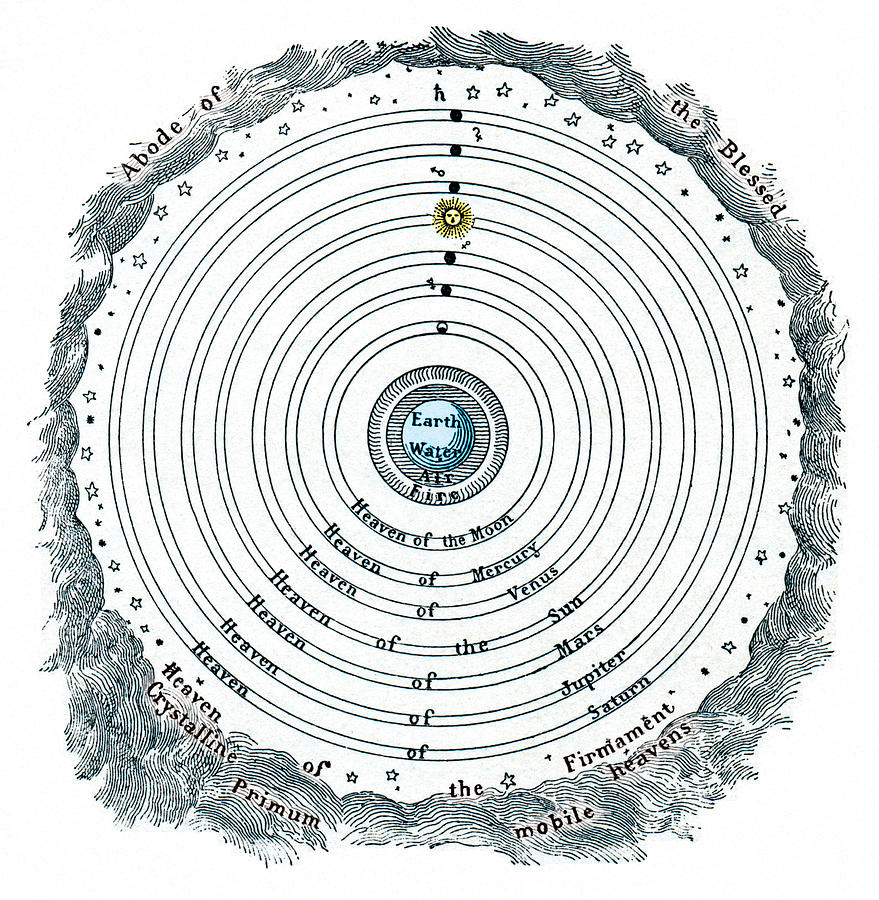Introduction
I would consider Claudius Ptolemy a very intelligent person. The Egyptian philosopher, mathematician, and geographer who lived over 2,000 years ago had what we would today consider a very strange view of the universe. The graphic representation below shows the beliefs of Ptolemy and many others about the structure of the universe. They believed that the Earth was the center of the universe and all the planets and stars revolved around it.
The universe, according to Claudius Ptolemy.Egyptian astronomer, mathematician, and geographer
The premise that the Earth was the center of the universe represented a fundamental flaw in otherwise rational thinking.
Even very smart people fall into logical traps. No matter how sound your reasoning, if you begin with a flawed premise you will ultimately reach an unsound conclusion. Logic has this pesky characteristic.
Searching for Premise
When Donald Trump started saying that countries with which we had trade deficits were "ripping us off," I could not figure out upon what basis he made those claims. Donald Trump has a habit of not explaining the rationale behind his thinking. I wanted to give him the benefit of the doubt so I went searching for the premise upon which he made those statements.
I could not figure out why trade deficits did not become a problem until the trade crossed national boundaries. In my search for the premises behind this thinking, I encountered the book No Trade Is Free by Robert Lighthizer (who advises President Trump on trade policy.)
I did not have to get too far into the book before I discovered the underlying premise for what I consider a terribly flawed trade policy.
Market Premise
I discovered early in the book Lighthizer's underlying premise about the operation of markets. He writes:
"Producing things is crucial to citizens' capacity to enjoy the dignity of work, support their families, and actively contribute to society." - Robert Lighthizer - No Trade is Free (My emphasis)
Although I do not disagree with this statement, I found it curious that he placed "producing things" ahead of the reason for producing things, i.e., consumption. I believe I found the answer in his statements about trade policy.
Trade Premise
In the following statement, Lighthizer makes it clear where he places his priorities. He places helping working-class families ahead of the importance of effective and efficient provision of goods and services. This ordering of priorities represents a fatal flaw in the premises upon which Lighthizer bases his beliefs about trade policy.
Market Purpose
Markets exist for the sole purpose of supporting consumption, not for supporting work. Producers work in order to support consumption. Because producers also consume, the connection can prove a little confusing. The fact remains that production always precedes consumption, and providing goods and services for consumption represents the only reason to produce.
I addressed this important point in a previous post —Market Purpose: Consumption — where I made it clear that consumption provides the only reason for working and producing. In order to have something to consume, producers must first produce, but consumption provides the only reason for that production.
Robert Lighthizer's Perspective
I can understand what formed Robert Lighthizer's perspective. He described in his book how we saw people become unemployed and unable to support their families because factories moved out of industrial towns. I'm sure it looked to him like the problem consisted of people not being able to find work.
Many well-meaning people have felt the same way. I would suggest, however, that they really saw people unable to acquire what they needed for a good life. These people wanted to work in order to earn the resources needed to acquire what they wanted and needed for a good life.
Your Perspective
What perspective do you have?
Do you work simply for the pleasure of working, or do you work to have the resources to support an adequate and better lifestyle? Do you consider the elements of consumption as a "secondary goal?"
Conclusion
I think Donald Trump and his advisor, Robert Lighthizer honestly believe that since work comes first, it must take priority over consumption. That premise has, in the past, led to, and will in the future lead to, some very negative unintended consequences.
In my next post, I will address how the flawed "work priority" premise runs counter to many governmental policies. The conflict between President Trump's (and Robert Lighthizer's) "work priority" premise and the true "consumption priority" premise has led to damaging policies in domestic production and foreign trade.






Please say more about how markets exist solely to support consumption. Does work/ production support consumption, also? If markets exist solely to support consumption, what does this say about government intervention?